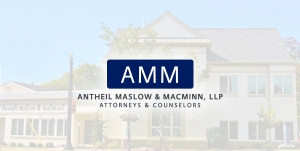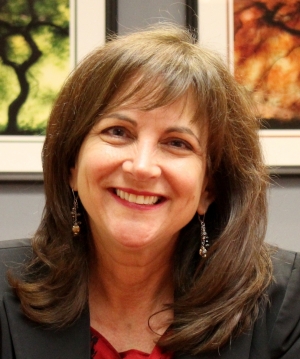The Thief and the Nonprofit; What’s a Board To Do?
According to the National Center for Charitable Statistics (NCCS), more than 1.5 million nonprofit organizations are registered in the U.S. We are proud to represent many such nonprofit organizations operating in the greater Delaware Valley.
These organizations serve the communities in which we live with steadfast passion and dedication. The focus on community improvement, volunteerism and charity is remarkable. We are pleased to play our small part in furtherance of their lofty goals.
Unfortunately, not everyone involved in the nonprofit industry shares the same altruistic philosophy. Invariably, we read newspaper stories about the nonprofit treasurer who diverted funds destined for an ambulance squad or the director that diverted hundreds of thousands from youth athletics programs. The question becomes, what is a nonprofit to do when defalcation is discovered?
Generally, the law imposes no duty upon an individual or organization that discovers a financial defalcation to report the facts discovered to the authorities. Only with respect to certain crimes, mostly involving abuse or child pornography, does a duty to report criminal activity arise. Under current statutory law, no such duty exists upon the discovery of a theft or diversion of nonprofit funds.
Many nonprofits are reluctant to report the defalcation. The negative publicity which follows a public disclosure can be devastating to the credibility of an organization that is already competing for donor dollars. Based on such pressures, for-profit organizations often choose to forego even the private exercise of confronting the accused in an effort to seek recovery preferring instead to simply take steps to ensure the same kind of breach of trust could not be repeated. In the nonprofit world, such private decision making is in sharp contrast to fiduciary duties owed to the organization and the moral, if not legal, duties which are founded in the donor/donee relationship. Moreover, the public nature of nonprofit tax filings may render disclosure inevitable, such that the desired privacy cannot be maintained.
Large nonprofits must file an Internal Revenue Service Form 990 each year. The form summarizes the financial performance of the nonprofit. In turn, every Form 990 that is filed is publicly available with just a few key strokes. The Form 990 requires that the organization report to the IRS whether the organization “became aware of a significant diversion of the organization’s assets” in the current year. Thus, the IRS requires the organization disclose defalcations which amount to a “significant diversion”.
Despite potential negative publicity associated with disclosure of malfeasance in nonprofit administration, the inevitability of disclosure weighs in favor of a more transparent approach. Best practices suggest that the entity’s Form 990 be reviewed by the board of directors prior to submission to the IRS, in fact, the redesigned form asks whether the tax return was furnished to the board for review prior to filing. An astute donor – particularly a business savvy donor - is likely to read the 990 with a critical eye. The worst scenario is that a director or donor becomes aware of the defalcation and subsequently questions the adequacy of management response, potentially a death knell to contributions, and the tenure of the secretive executive director.
In addition, the nonprofit’s auditor, while not required to disclose every fraud in a footnote to the financials, would need to consider whether the theft had a financial impact on the statements. If the dollar amount warranted it, it might have to be reported directly on the statements – either as a line item-loss from fraud or a receivable for repayment of stolen funds.
Further, the question of the directors’ fiduciary duties to the organization in such circumstances has not yet been addressed. Certainly, the directors of a nonprofit, having been placed in a position of trust by the organization, and bear some responsibility for effective management and control. To date, no court has imposed liability upon the directors of a nonprofit for failing to investigate potential recovery, failing to report defalcation, or failing to seek recovery of proceeds unlawfully diverted. While that is certainly not what the volunteer directors sign up for, we can see that case coming.
Navigating the potential exposure requires a complete understanding of financial controls and information, reporting requirements and the composition of the board of directors. Generally, the best advice is to conduct a complete investigation, proactively adopt whatever policies are necessary to prevent a re-occurrence, and report the bad actor to the relevant authorities. Such actions would certainly satisfy any duty to the organization.
Best Practices: Background Checks for Nonprofit Board, Staff and Volunteers
Reprinted by permission of Catalyst Center for Nonprofit Management. Further duplication without permission is prohibited.
Childhood victimization and other abuses of our most vulnerable citizens unfortunately remain a much too prevalent and tragic issue of our times. Particularly offensive is the possibility of physical or emotional abuse of those susceptible because of age, disability or circumstance while receiving services of a nonprofit. Safety efforts to protect the very people being served by a nonprofit, regardless of size, must be constantly monitored.
Even the smallest nonprofit should adopt safety-related policies based on nationally recommended guidelines developed by experts. Such policies and guidelines help protect both the recipients of the nonprofit’s services and the integrity of the nonprofit’s programs. Every nonprofit that serves children and youth has the obligation to exercise “reasonable due diligence” with regards to screening as part of its hiring and vetting programs for members of the nonprofit’s Board, staff and volunteers. Without such screening or gate-keeping vigilance, the very people the nonprofit is trying to serve are more likely to be unprotected and the reputation of the nonprofit (not to mention its fiscal health) are at unnecessary risk.






















